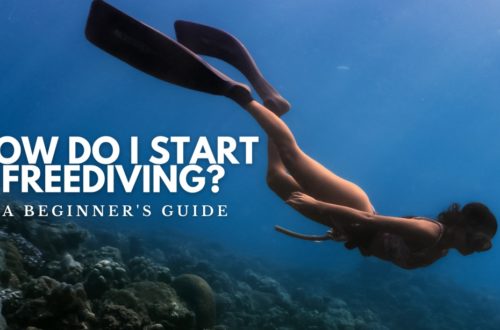The Differences between SCUBA Diving, Freediving and Skin Diving
The largest portion of this planet is covered with water bestowed with millions of creatures of different colors and species underneath. This also gives you millions of reasons to start diving now. Apparently, there are also lots of ways to explore it and among those are SCUBA diving, Freediving and Skin Diving.
I was introduced to diving in the last quarter of 2017. I was extremely captivated by the life underwater that I craved for more. The desire to explore and enjoy the ocean has lead me into trying SCUBA, skin diving and freediving. As I get frequently engaged into these, I have seen how each is different from the other. With that, here’s a comparison of the three.
1. Breathing
One of the major difference between SCUBA diving and Freediving/Skin Diving is on breathing. SCUBA stands for Self-Contained Underwater Breathing Apparatus. This type of diving lets you breath underwater as you explore the ocean since you will carry with you a SCUBA tank. Freediving and Skin Diving, on the other hand, is diving to the deep yet free from any breathing apparatus. The diver holds his or her breath which is a BIG NO for SCUBA divers or they will suffer in pulmonary barotrauma. What’s common between these is the need to equalize. The deeper the diver goes, the higher the pressure is. Thus, equalization is necessary regardless of the form of diving they are into.
As for the ascent, freedivers and skin divers may go faster and directly to the surface but SCUBA divers may not. The latter requires a safety stop few meters below the surface especially if the diver has spent a long time at the deep to avoid decompression sickness or bends. As we go deeper into the water, our lungs actually shrink. As the pressure increases, the air in our lungs decreases. Conversely, it expands as we ascend since the pressure decreases. The lungs of a SCUBA diver, however, has a source of air underwater. Further, we actually inhale more air down in depths than we do at the surface. Therefore, the lungs of a SCUBA diver is more likely to over expand as he surfaces which is extremely dangerous. A freediver doesn’t mind this one as he just holds his breath. He inhales much Oxygen his lungs could hold at the surface which he utilizes as he descends. As he runs out of it, the body sends a signal through contractions. With that, he has to do recovery breathing at the surface to fill his system with more Oxygen. The recovery breathing allows the freediver to quickly blow and release the Carbon Dioxide at first then gulps in more Oxygen to recover (the reason why it sounded like a pooh-haaaap).
 |
| SCUBA diving at Binukbok View Point |
2. The Diving Gear and Equipment
SCUBA diving equipment includes mask, wet suit, weight belt and lead weights, fins, diving gloves, diving socks, Buoyancy Compensator/ Buoyancy Control Device or the BC/BCD, regulator, the SCUBA tank, depth gauge, Submersible Pressure Gauge, compass and dive watch or computer. The wet suit and diving gloves and socks will protect the body from the cold since you will spend a long time underwater. Also, these will also protect the body from contact with any marine creature that may harm the skin. The fins in SCUBA diving is thick and short compare to the ones used in freediving. The mask does not necessarily have to be low volume since a SCUBA diver has the Buoyancy Compensator which controls his or her buoyancy or establishes a neutral buoyancy underwater. You can actually stay underwater and be able to breath with the SCUBA tank through the regulator. There are basically two regulators. The main is used by the diver himself carrying the tank and the other is for emergency purposes (for instance, shall the dive buddy runs out of air). The Submersible Pressure Gauge, on the other hand, lets you know how much air do you still have in your tanks.
Take your introduction to SCUBA Diving here: Summer Cruise & Diving in Batangas
 |
| Geared up for the dive! |

|
| Freediving at Bagalangit, Mabini, Batangas Gear from Decathlon Philippines |
Freediving versus Skin Diving
 |
| Freediving and Depth Training with Ocean Limits PH in Anilao, Batangas |
SCUBA Diving and Freediving are obviously different from one another. What is not known to a many is the difference between Freediving and Skin Diving. The two is somehow different from one another. Freediving is more of a sport where the freedivers usually go vertically aiming for depths, distance and apnea. Skin diving, however, involves recreational diving. It is actually snorkeling and freediving combined where the diver holds his breath and descends to explore the ocean for fun.
 |
| Skin Diving at Binukbok Viewpoint |
Start Freediving with SUBEA by Decathlon Philippines! Click here for a review of their complete freediving gear: Decathlon Philippines’ SUBEA Freediving Gear Review
Can I do both?
Everyone, including non-swimmers, can actually do both SCUBA diving and freediving regardless if it’s their first time. What’s extremely necessary though is their comfort and ease in being in the open water and diving into the depths. The choice is yours, though, as to which of these would you engage yourself into. You can actually do both but please take note that these two cannot be done at the same time and day or your lungs would suffer in a very serious trauma or injury. In the introduction to SCUBA diving, the the student is accompanied by the dive master and can only dive up to ten meters. Freedivers, on the other hand, start with small steps and continuously learn or master the freediving techniques such as proper duck diving, finning and equalization. Paying attention to contraction (the urge to breath) is also something to be greatly considered about.
 |
| with my PADI certified Dive Master, Kai Takagaki from Summer Cruise Diving |
The Pros, Cons and Risks
Both types of diving have pros, cons and risks; thus, it’s highly suggested that one takes introduction, safety and rescue classes to know what are you getting yourself into. As for pros, SCUBA diving lets you stay longer underwater. A swimmer or not, you can already dive down to ten meters on your first time. However, SCUBA diving requires a lot of gears and may cost a lot, too. Also, the bubbles coming from the regulator as you exhale drives away the sea creature you approach. Freediving and Skin Diving, on one hand, is way cheaper since you would only need a mask, snorkel and pair of good fins which you can actually carry around with ease. Also, since you’re holding your breath, you can get to observe intently the interesting sea creature at sight (just maintain distance and remember, do not touch!). The downside? You can only admire it for a few seconds or minutes. Consequently, you need a lot of practice in holding your breath for a long time and to be able to dive deeper. Another disadvantage would be, you cannot stay for hours underwater.
As for the risks, SCUBA divers are prone to decompression sickness or DCS/ the bends. Hence, divers should be very watchful of their depths and the amount of air enough for the safety stop. Freedivers and skin divers, consequently, are prone to black outs and cramps due to finning. For the former, contraction should not be disregarded nor ignored especially if you are new to the sport. To avoid the latter, choosing the right fins is necessary.
Whatever diving discipline you are engaged into, you must be aware that you should never dive alone for safety purposes. Which of these do you prefer? Let us know at the comments section and why.
Looking for interesting and accessible diving spots near the metro? Click here!
Special thanks to my SCUBA Dive Master Kai Takagaki and freedive instructors Dr. Irene Villaflor and Coach Kel Clarin for teaching me these things! Among the great things about diving is meeting new and a lot of people like them whom you can actually learn from!





One Comment
karen
Nice post there! Got a lot of information with this. I want to share a company that is specialized in diving classes. “Frog Dive“. They have classes and courses that suits all diving skill levels. Thanks again!